Care and Feeding Tips for Wild Baby Birds — and Why You Shouldn't Need Them
The best thing you can do for a wild baby bird is to gently put them back in their nest.
Updated June 27 2024, 3:32 p.m. ET
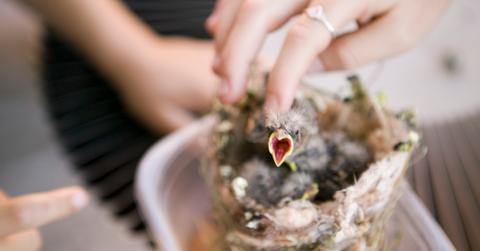
If you come across a hungry baby bird and can’t find their nest, there are three options: feed them, try to put them back in their nest, or let them be. For most of us, the idea of leaving the poor creature to their own devices is unthinkable. Some birds don’t like when humans touch their young, so option two might be just as likely to result in the fledgling’s death.
If you do choose to intervene, how exactly does one go about feeding a baby bird? Keep reading for everything you need to know about baby bird care, and why you should only step in if it's truly necessary.
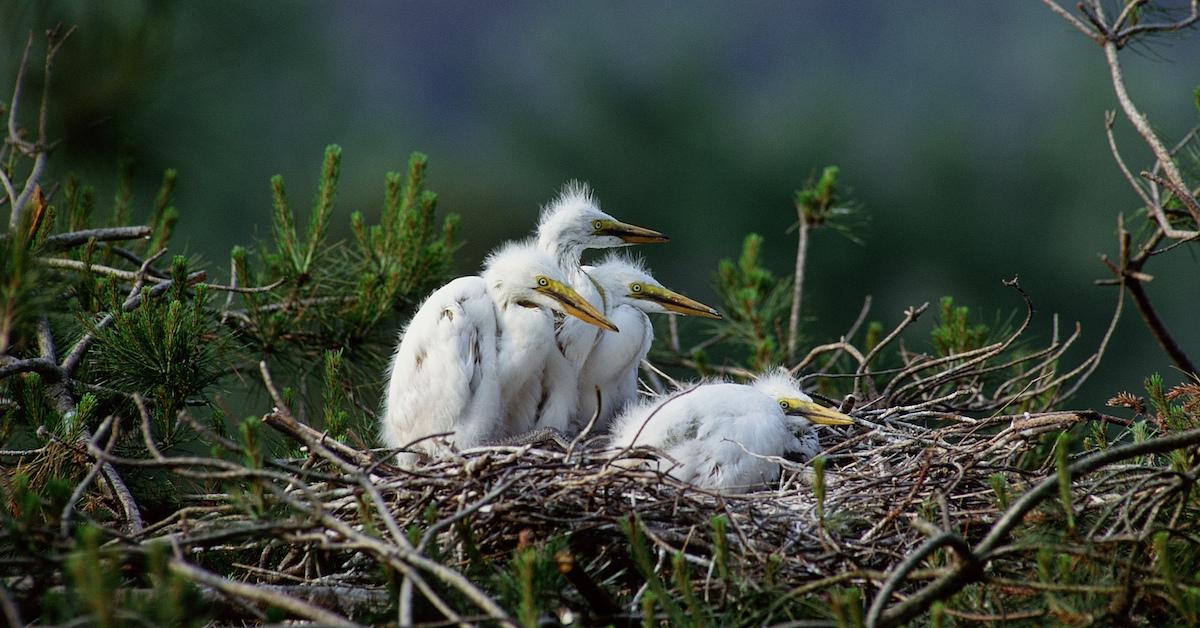
Should I feed a baby bird in the first place?
There's a significant difference between baby birds you're raising yourself, such as chickens or other poultry, and wild birds. The sad fact is, most experts do not recommend that you attempt to feed a baby bird if you know the parents are still around.
According to Birdwatching Bliss, feeding a baby bird can do more harm than good, though they recommend leaving the baby some water just in case. In most cases, the best course of action is to contact animal control so that they can come to rescue the bird. You could even take the injured bird to a local veterinarian's office to see if they can help.
Local wildlife rehabilitation centers will also do the trick, such as the Wild Bird Fund in New York City. Whatever you choose and whatever happens after, well, most people will understand that your heart was in the right place.
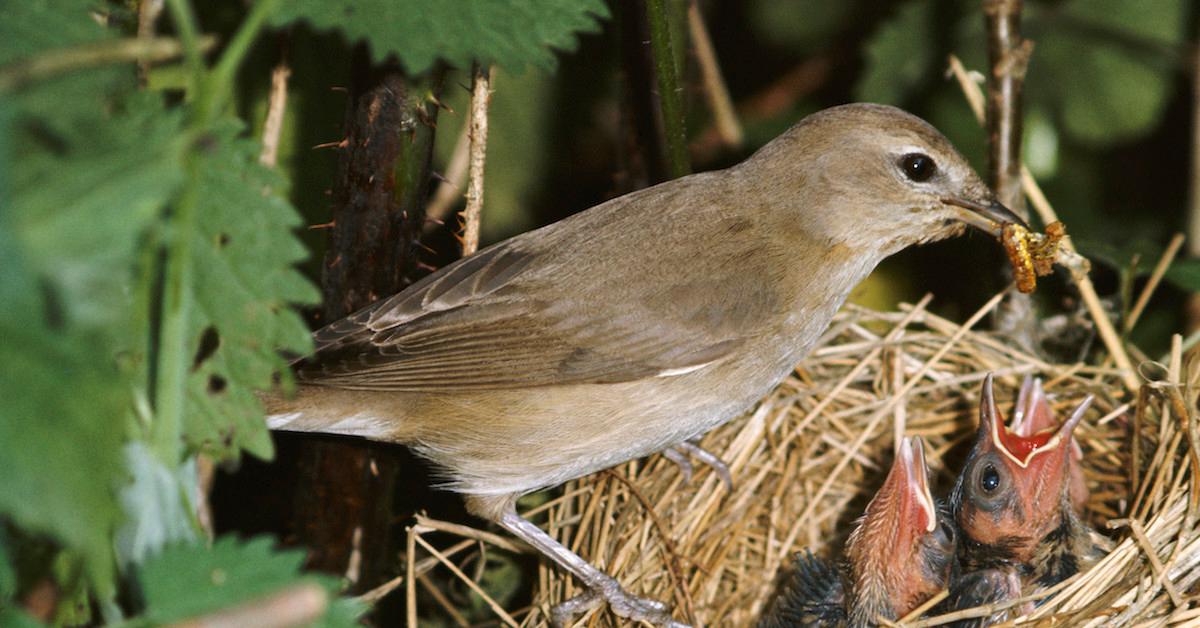
Here's what to feed a baby bird:
You'll find that when it comes to proper food, it all depends on the age and species of the specific bird. If you’ve committed to caring for this baby bird, we would advise reaching out to a veterinarian for advice about what your baby specifically needs. That said, there are a few food tips that we can impart.
According to The Spruce, there are many commercially available formulas for hand-feeding baby birds. They recommend choosing one at the start and sticking with that brand and composition until the baby is weaned off it. Baby birds are particularly susceptible to changes in diet, which can be stressful for the baby and their digestion.
Baby birds can eat worms starting at 5 days of age, but those worms should be crushed and fed through an eyedropper at that age. It might sound like a grisly procedure, but it's necessary to keep the birds from being stressed. Once they reach about 5 weeks old, they can start to eat halved worms and will accept whole ones upon reaching adulthood.
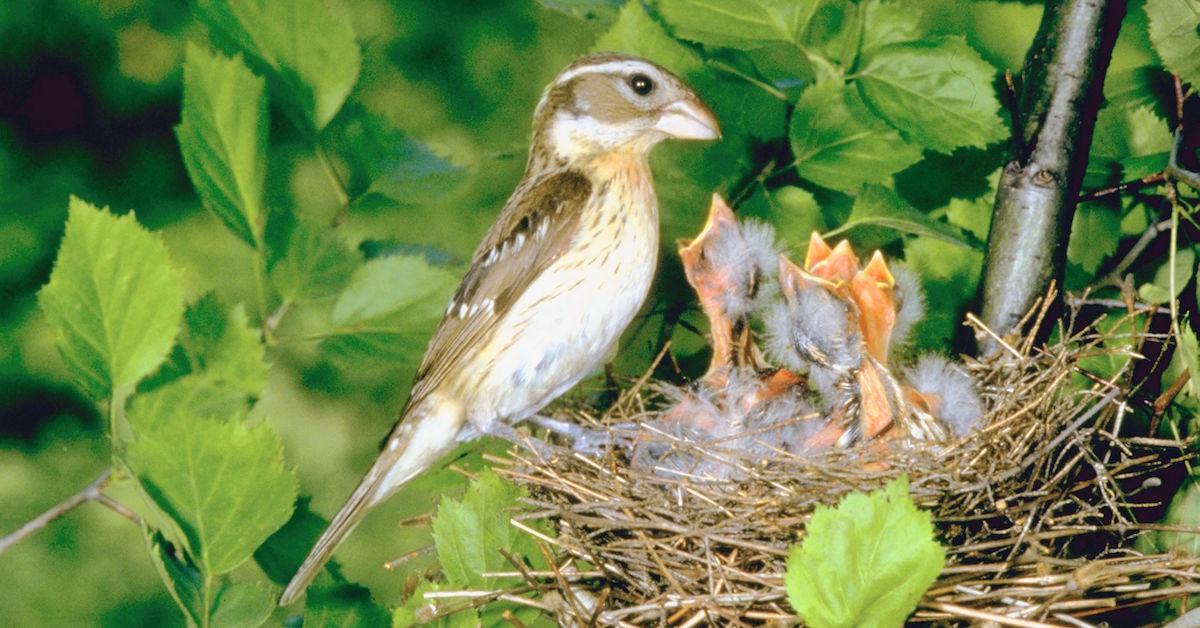
Here's how to properly feed a baby bird:
When it comes to feeding baby birds, freshness is key. According to VCA Hospitals, baby bird food must be preparedfresh before every feeding. The principles behind this thinking are similar to those used by parents with newborns. Milk and formula that has either sat out too long or been retained from a prior feeding is a hotbed for bacterial growth. The same is true for baby bird food.
VCA Hospitals recommends heating baby bird food to 102 degrees and 106 degrees Fahrenheit, but no hotter. Cold food won’t work either, unfortunately. For one, food that is too cold will slow digestion, and baby birds might reject it outright. Achieving the perfect heat is also key to keeping harmful yeast and bacteria out of your baby's food. If you’re microwaving the food, mix it thoroughly to ensure a consistent temperature.
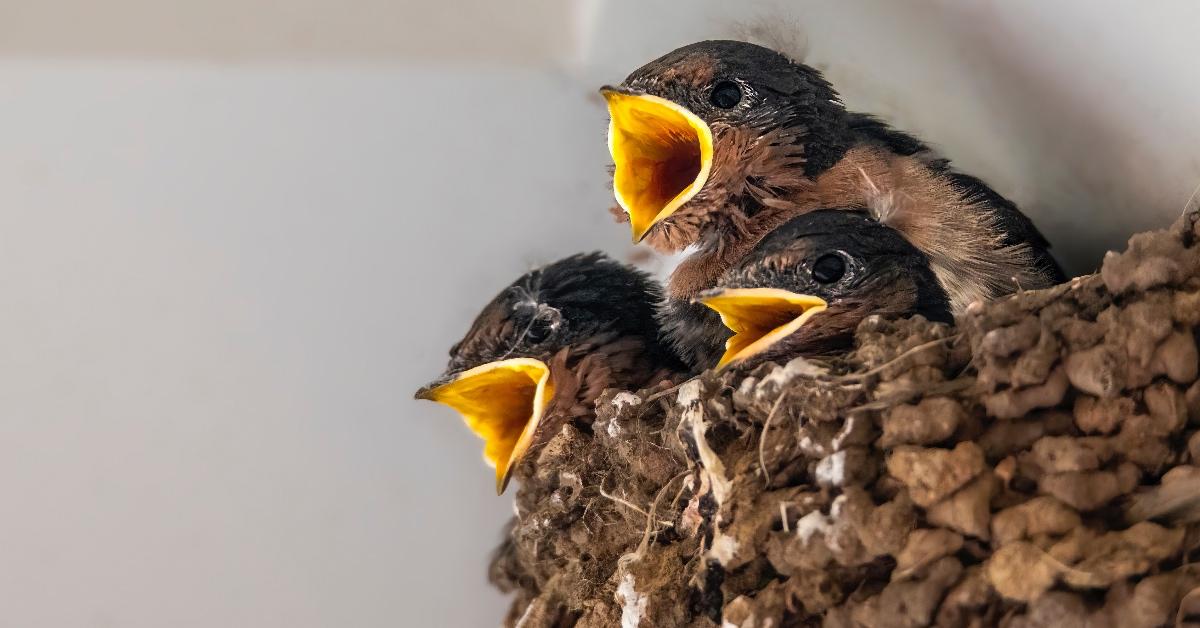
These directions are for conventional baby bird food mixes, which tend to get mixed with water like human baby formula. Note that younger chicks require a thinner mixture to digest properly. It’s difficult to tell the age of a bird, but go thinner if the bird seems tinier and thicken it more as the baby grows.
It is possible to overfeed a baby bird, but they will generally let you know when they’ve had enough by shutting their bill. Never force a baby bird’s mouth open to give them more. They’ll let you know when they are hungry.
If your foundling bird has aged enough to eat something besides formula, make sure that any of it is small enough for the bird’s size. Any dry food should be softened and spongy before giving it to the baby. According to Pets on Mom, baby birds can be fed mealworms as a dietary supplement.
This article, originally published on June 15, 2021, has been updated.